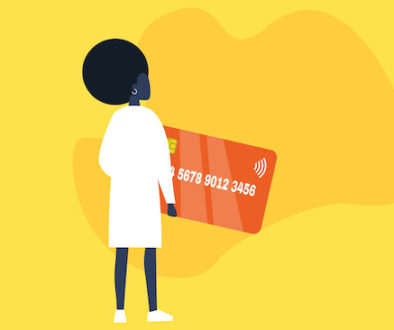How to budget your money when you have your first job?
When you start your first job, it can be difficult to know how to budget your money. From clothing to new technological devices, there are many ways to spend the money you earned with so much effort, but that’s you who need to decide where you want to spend, and for what purpose?
Here are some tips to help you separate your need/desire and something that can be programmed to do later for financial success.
Set A Budget
Start with your fixed monthly bills, such as rent, installment of car purchase, student loan, renter’s and your car insurance, utilities, telephone, Internet and payments of your credit card.
Add the variable monthly expenses, including the costs of storage, clothing, haircuts, entertainment and gifts. These are the areas where you can reduce your expenses if necessary. Use financial tools or calculator in order to count and add up all your expenses.
Subtract all the money you spend from the full payment to determine your discretionary income and then decide what part of it you want to save each month. If the total amount does not allow you to save what you want, check your variables to see where you can reduce expenses.
Once you have set your monthly savings goal, include that amount in your budget for monthly bills and discuss the possibility of establishing an automatic transfer from your savings account. This will allow you to use their savings to avoid impulse buying.
Create An Emergency Plan
Cultivating the habit of savings from the start will give you the resources to make a major purchase in future. It will also help you withstand unexpected financial storms. A dismissal, a traffic accident or a broken cell phone can affect your income and generate more costs than budgeted. Saving some money in good times can help you avoid using credit cards and debt generation when things get tough.
Finally, you must save the equivalent of three to six months of living expenses. Once you have achieved this goal, do your best to forget about the money. Consider the option opening an account that is not associated with your checking account. When you have it separately, it will be difficult to transfer money for unnecessary purchases at the touch of a button which could make you avoid unnecessary purchase.
Limit Your Debt
While use and pay by credit card regularly can help you build a good credit score, but it is wise to avoid making purchases that you can not pay immediately. If you already have one purchase/due bill of a credit card with a high-interest rate, dedicate a significant part of the money budgeted for the savings to the outstanding balances. It is always important to have an emergency fund, but paying high-interest debt must come first.
The grace period before you must begin repaying your student loans is a good time to reduce the debt of your credit cards or save all you can. If you budget your money from the start, you will not feel that your salary disappears when the bills start arriving.
Save For Retirement
If your company offers a 401 (k) retirement savings plan, sign up soon. Otherwise, traditional individual retirement account (IRA) or Roth can be a good option for you. The sooner you start saving, the more your investments will grow and the greater the amount of money you will have for over the years. Some part of your salary will be deducted for this, but if you delay enrollment and get used to have full salary, then it can be harder for you later to contribute money to a retirement fund. If you can not contribute much at first, start with little, and can increase it later. For example, whenever you get a raise, allocate a portion of the increase in your retirement fund.
No matter how careful you are, your finances can derail a while. But if you create a budget that you can stick to (and if you make the necessary adjustments when things change), it will develop smart financial habits that will bring benefits for years to come.



